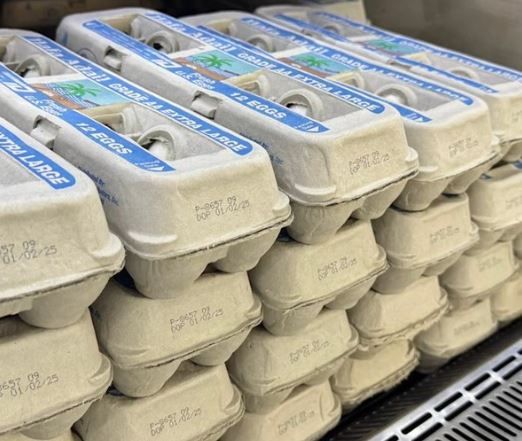Convenience vs. cost: local businesses forced to ration eggs to customers
If you’ve been to the grocery store recently, you’ve likely seen the signs - only one carton of eggs per customer. With supply issues impacting availability, many are now asking: is it worth buying eggs at the store, or is dining out the bette

If you’ve been to the grocery store recently, you’ve likely seen the signs - only one carton of eggs per customer. With supply issues impacting availability, many are now asking: is it worth buying eggs at the store, or is dining out the better option?
At supermarkets across Guam, the signs are up — "Limit (1) egg carton per customer"
A combination of Avian Flu outbreaks in the United States and trade tariffs are impacting egg supplies nationally and forcing stores to implement limits. Additionally, a delayed Matson shipment to Guam carrying produce, eggs, and other essential food items has left store shelves emptier than usual.
But there’s good news for shoppers: Matson has confirmed that the Maunalei 198W arrived on schedule this morning at the Jose D. Leon Guerrero Commercial Port, carrying two weeks’ worth of freight directly from the West Coast. Crews are actively unloading the vessel, and grocery store shelves should be restocked soon.
Even with more supply on the way, prices remain high, forcing many to weigh their options - spend more on a dozen eggs or pay for the convenience of dining out?
The average cost of one hard-boiled egg at a restaurant is $3.25, while the cost of a dozen eggs at the grocery store is anywhere from $8 to $12.
That means ordering just one egg at a restaurant for $3.25 would only get you two or three eggs from the grocery store—far less than a dozen.
So, is the convenience of having someone else cook your eggs worth the price, or is buying in bulk the smarter financial choice? On Guam, breakfast and brunch - especially after church or on weekends - is more than just a meal; it’s a tradition that brings families and friends together. But with egg prices rising, some may rethink their weekend brunch plans in favor of opting for home-cooked meals instead.
With store shelves filling back up, the question remains: do you spend more for the convenience of dining out, or save money by cooking at home?
